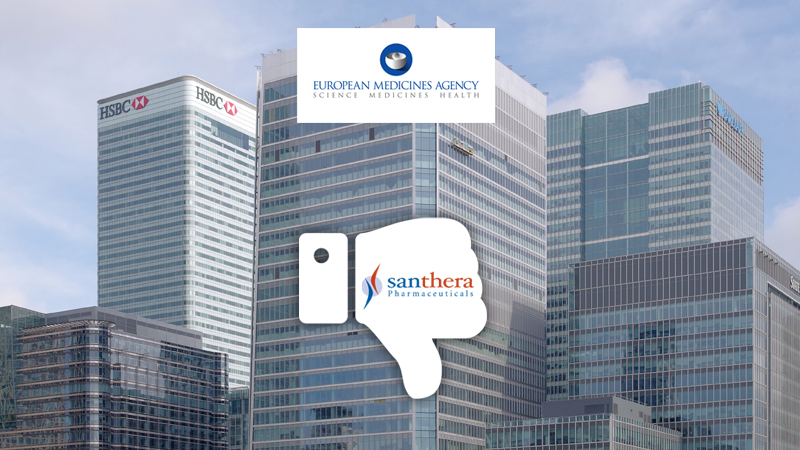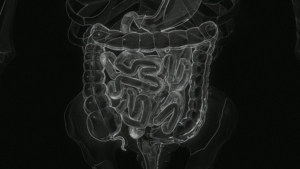
EMA rejects Santhera’s DMD drug
The European Medicine Agency's CHMP has rejected a type II extension application to Santhera Pharmaceutical's coenzyme Q10 analogon idebenone (Raxone) as treatment for patients with Duchenne muscular dystrophy (DMD). Raxone was approved under exceptional circucumstances in September 2015 to treat visual impairment in patients with the rare eye disease LHON.
In an oral hearing, on the afternoon of 14 September, the Committee for Medicinal Products for Human Use (CHMP) said it was uncertain whether Santhera’s pivotal Phase III DELOS trial on 66 DMD patients provides sufficient evidence of efficacy to allow a Type II variation of Santhera’s existing marketing authorisation for Raxone. Shares of the the company dropped by 58%.
It’s another setback for Santhera as last July, the US Food and Drug Administration (FDA) also rejected market approval based on DELOS results but asked Santhera for an additional trial (Sideros) in DMD patients taking concomitantly glucocorticoids. Sideros will take another three years. Particularly, this was bitter for Santhera, whose drug idebenone had previously received FDA fast track status in DMD, as its competitor in the DMD field, Sarepta Therapeutics, got FDA marketing authorisation later that year and set a price tag of US$300,000 per patient for its exon-skipping drug eteplirsen in the rare X-chromosomally inherited disease that affects one in 3,500 men and leads to paralysis due to an defective dystrophin gene.
Santhera had designed its pivotal study to show that patients who were previously treated with glucocorticoids or in whom glucocorticoid treatment was not tolerated, could benefit from it. That would have created a market niche besides glucocorticoid drug developers such as Marathon Pharmaceuticals, which recently got FDA market approval for such a steroid drug dubbed deflazacort, which the company markets at an annual price of US$89,000 per patient.
However, as Santhera also faced EMA rejection prior to the EU approval of idebenone in the ultra-rare indication Leber Hereditary Optic Neuropathy, the company didn’t give up. It announced to appeal the opinion and will seek a re-examination by the CHMP. "We are surprised and disappointed by the opinion of the CHMP. Data from the Phase III DELOS trial demonstrated statistically significant and clinically relevant evidence that Raxone slows the decline of respiratory function, and reduces the risk of bronchopulmonary complications and hospitalisation in patients with DMD not using glucocorticoids," said Thomas Meier, CEO of Santhera. "These patients in the respiratory decline stage currently have no treatment options, and because we are confident that they could benefit from treatment with Raxone, we plan to appeal this opinion and seek re-examination." Santhera has published results from DELOS study that show that the synthetic antioxidant slows the loss of respiratory function in patients not concomittantly taking glucocorticoids.
DMD is characterised by a loss of the protein dystrophin, leading to cell damage, impaired calcium homeostasis, elevated oxidative stress and reduced energy production in muscle cells. This results in progressive muscle weakness, muscle wasting, early morbidity and mortality due to respiratory failure. As idebenone can protect mitochondria from oxidative damage it is expected to boost their impaired function and thus slow decline in heart function, which is part of the disease process of DMD. It might be possible that patients may benefit in terms of muscle strength and respiratory function.
Raxone is a hybrid medicine’. This means that it is similar to a reference medicine’ containing the same active substance, but Raxone contains idebenone at a different strength. The reference medicine for Raxone is Mnesis. Santhera is developing Raxone in a third indication, primary progressive multiple sclerosis (PPMS). In the US, the company runs a Phase II trail in this indication.



 Unsplash+
Unsplash+